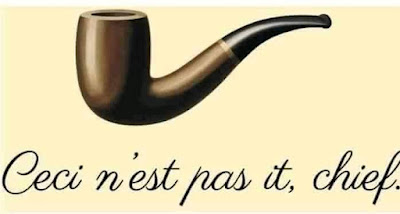How Does Anyone Do This?
I've just spent approximately two hours working on one stanza of my wretched poem. It didn't start off wretched -- I feel, very keenly, that my first (free verse) draft was far more successful than my formal verse attempts have been. And yet I continue to try to force this thing.
Two weeks ago I began trying to rewrite the second section of my poetry manuscript in formal verse. I'm writing something that approximates a fairytale, and is narrative in nature. So I thought I'd try Edmund Spenser's Spenserian stanza, which is written in iambic hexameter and ends with an "Alexandrine" line (an iambic heptameter line, which employs a caesura, and forms a couplet). This is according to Lewis Turco's Book of Forms, which I'm kind of regarding like my bible right now, and trolling every so often for options regarding form and also to just make sure I'm on the right track.
As you'll see from my first post, I thought it went well. And then a day or so later I reread my attempt and felt dismay -- the language seemed flat. There were some moments I liked, but overall the poem just wasn't working for me. So I tried to rewrite it as a ballad stanza (4 beats/3 beats/4/3), and then it seemed too sparse. There was more music in my free verse version, honestly.
So this morning I tried to go back to the Spenserian stanza -- because I'm stubborn, obstinately so, and because Turco called "The Faery Queen" one of the most "unreadable" poems in the English language, and I liked that challenge. Spenser tried to write a moral allegory, and I'm attempting to write an allegory as well, while creating a kind of criticism or comment about the genre of "fairy tale".
And now I've just reread this post and all of this agonizing seems a little foolish to me. After all, why? Will the reader care that I've spent so much time agonizing over the form? Probably not.
But I can't help but feel that the longer line is the right line for the poem, and that if I'm going to be writing in verse, I should pick the form that is appropriate, and MEANINGFUL, to the subject matter. While I'm not trying to rewrite "The Faery Queen" by any stretch of the imagination, I want my adoption of Spenser's form -- or whatever form I choose, ultimately -- to indicate or parallel the poem's purpose: to comment on society, indirectly, and artfully.
And so, for now, I'll continue hammering away at my poor poem. Hopefully I don't render it unrecognizable in the process.
Two weeks ago I began trying to rewrite the second section of my poetry manuscript in formal verse. I'm writing something that approximates a fairytale, and is narrative in nature. So I thought I'd try Edmund Spenser's Spenserian stanza, which is written in iambic hexameter and ends with an "Alexandrine" line (an iambic heptameter line, which employs a caesura, and forms a couplet). This is according to Lewis Turco's Book of Forms, which I'm kind of regarding like my bible right now, and trolling every so often for options regarding form and also to just make sure I'm on the right track.
As you'll see from my first post, I thought it went well. And then a day or so later I reread my attempt and felt dismay -- the language seemed flat. There were some moments I liked, but overall the poem just wasn't working for me. So I tried to rewrite it as a ballad stanza (4 beats/3 beats/4/3), and then it seemed too sparse. There was more music in my free verse version, honestly.
So this morning I tried to go back to the Spenserian stanza -- because I'm stubborn, obstinately so, and because Turco called "The Faery Queen" one of the most "unreadable" poems in the English language, and I liked that challenge. Spenser tried to write a moral allegory, and I'm attempting to write an allegory as well, while creating a kind of criticism or comment about the genre of "fairy tale".
And now I've just reread this post and all of this agonizing seems a little foolish to me. After all, why? Will the reader care that I've spent so much time agonizing over the form? Probably not.
But I can't help but feel that the longer line is the right line for the poem, and that if I'm going to be writing in verse, I should pick the form that is appropriate, and MEANINGFUL, to the subject matter. While I'm not trying to rewrite "The Faery Queen" by any stretch of the imagination, I want my adoption of Spenser's form -- or whatever form I choose, ultimately -- to indicate or parallel the poem's purpose: to comment on society, indirectly, and artfully.
And so, for now, I'll continue hammering away at my poor poem. Hopefully I don't render it unrecognizable in the process.


Comments